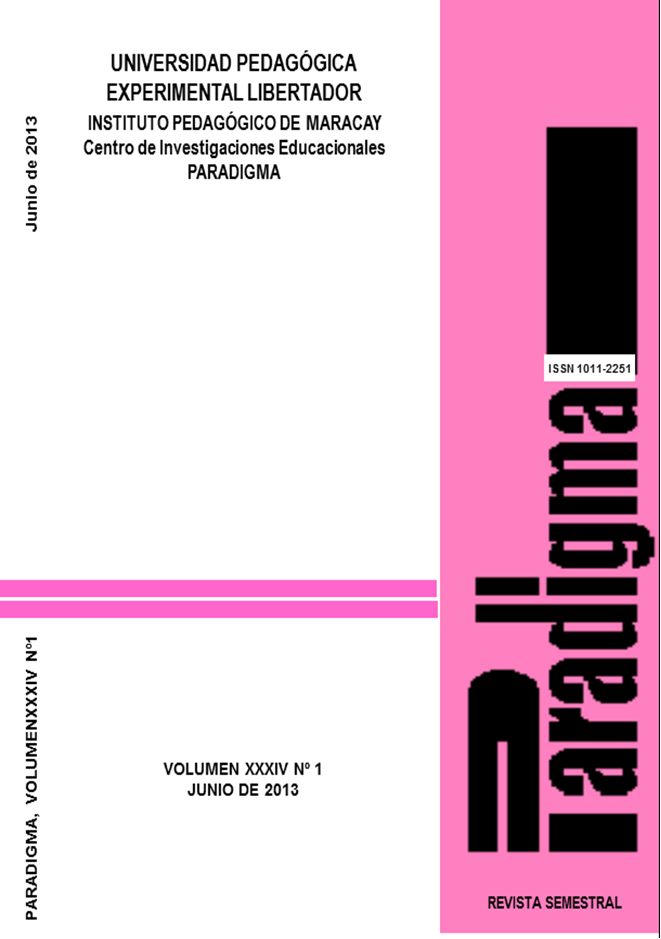¿MIDEN LO MISMO DISTINTOS FORMATOS DE PREGUNTA? UNA REVISIÓN SOBRE EL TEMA.
DOI:
10.37618/PARADIGMA.1011-2251.2013.p69-82.id510Resumen
Los test o pruebas son los instrumentos empleados para la medición de variables del ámbito psicológico y educativo y los resultados de estos son utilizados para la toma de importantes decisiones que afectarán muy directamente la vida de los examinados. Esta es la razón por la que su estudio tiene una gran relevancia en la investigación científica. En tal sentido, este artículo recoge los hallazgos de los estudios más importantes acerca del formato de la pregunta en pruebas de desempeño y la influencia que tienen sobre la ejecución de la tarea, al investigar si los distintos formatos de ítems logran medir lo mismo o, si por el contrario, tienen un efecto diferencial sobre la conducta generadora de competencias del examinado al momento de afrontar una prueba.Palabras clave: formato del ítem, elección múltiple, respuesta construida. DO DIFFERENT ITEM FORMATS MEASURE THE SAME CONSTRUCT? A REVIEW OF THE SUBJETCAbstractThe tests are the instruments used for the measurement of variables of psychological and educational field and the results of these are used for making very important decisions that will affect directly the lives of the examined. This is the reason that their study is of great significance in scientific research. As such, this article presents the findings of the most important studies about the item format in performance tests and their influence on the execution of the task, to investigate whether the different item formats measure achieve the same or, on the contrary, have a differential effect on the behavior of the considered generating skills when facing a test.Keywords: item format, multiple choice, constructed response.Descargas
Los datos de descargas todavía no están disponibles.
Descargas
Métricas
Visualizações do artigo: 97 PDF downloads: 27
Cómo citar
Urdaneta Durán (ULA-NURR), E. J. (2014). ¿MIDEN LO MISMO DISTINTOS FORMATOS DE PREGUNTA? UNA REVISIÓN SOBRE EL TEMA. PARADIGMA, 34(1), 69–82. https://doi.org/10.37618/PARADIGMA.1011-2251.2013.p69-82.id510
Número
Sección
Artículos


 English
English
 Español (España)
Español (España)
 Français (France)
Français (France)
 Português (Brasil)
Português (Brasil)




















































